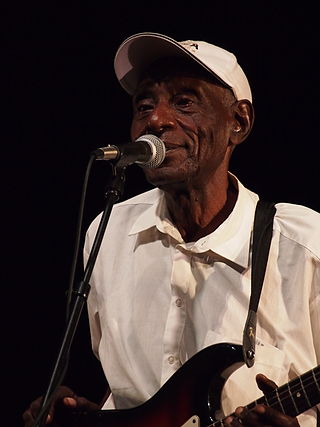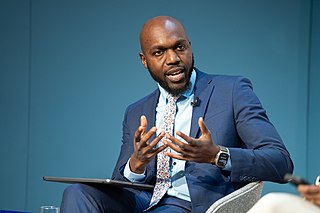Related Research Articles

John Peter Zenger (October 26, 1697 – July 28, 1746) was a German printer and journalist in New York City. Zenger printed The New York Weekly Journal. He was accused of libel in 1734 by William Cosby, the royal governor of New York, but the jury acquitted Zenger, who became a symbol for freedom of the press.
The Daily Nation is a Kenyan newspaper. It was founded in 1958 and is published in Nairobi.
Charles "Mase" Onyango-Obbo, also Charles Onyango Obbo, is a Ugandan author, journalist, and former Editor of Mail & Guardian Africa. He is a former Managing Editor of The Monitor, a daily Ugandan newspaper, former Executive Editor for the Africa and Digital Media Division with Nation Media Group. Considered one of the finest journalists in Africa, Onyango-Obbo is a political commentator on issues in East Africa and the African Great Lakes region. He writes a column, "Ear to the Ground", in The Monitor, a second column in the regional weekly The EastAfrican, and a third in the Daily Nation.
Pio Gama Pinto was a Kenyan journalist, politician and freedom fighter. He was a socialist leader who was key in Kenya's struggle for independence. He was assassinated in 1965, leading many to consider him independent Kenya's first political martyr.
The Standard is one of the largest newspapers in Kenya with a 48% market share. It is the oldest newspaper in the country and is owned by The Standard Group, which also runs the Kenya Television Network (KTN), Radio Maisha, The Nairobian, KTN News and Standard Digital which is its online platform. The Standard Group is headquartered on Mombasa Road, Nairobi, having moved from its previous premises at the I&M Bank Tower.

The Cape Argus is a daily newspaper co-founded in 1857 by Saul Solomon and published by Sekunjalo in Cape Town, South Africa. It is commonly referred to as The Argus.
George Moseti Anyona (1945–2003) was a politician from Kenya.
Priya Ramrakha was an Indo-Kenyan photojournalist.

Harry Thuku was a Kenyan born in Kiambu, Mitahato village. As a politician, he was one of the pioneers in the development of modern African nationalism in Kenya. He helped found the Young Kikuyu Association and the East African Association before being arrested and exiled from 1922 to 1931. In 1932 he became President of the Kikuyu Central Association, in 1935 founded the Kikuyu Provincial Association, and in 1944 founded the Kenya African Study Union. Opposed to the Mau Mau movement, he later retired to coffee-farming.

Bildad Mwaganu Kaggia was a Kenyan nationalist, activist, and politician. Kaggia was a member of the Mau Mau Central Committee. After independence he became a Member of Parliament. He established himself as a militant, fiery nationalist who wanted to serve the poor and landless people. Because of this he fell out irreconcilably with Jomo Kenyatta.

Mass media in Kenya includes more than 91 FM stations, more than 64 free to view TV stations, and an unconfirmed number of print newspapers and magazines. Publications mainly use English as their primary language of communication, with some media houses employing Swahili. Vernacular or community-based languages are commonly used in broadcast media; mostly radio.

John Nzenze was a musician from Kenya. He had performed the twist dance style. Some of his most popular songs were "Angelike", "Julieta Rudi Tuone" and "Habari za Nairobi ".
Mwananchi Communications Ltd is a company based in Tanzania. Mwananchi Communications Ltd, engages in the print media and digital media, and is the publisher of Tanzania's leading daily newspaper, Mwananchi, and others such as The Citizen, Sunday Citizen, Mwananchi Jumapili, Mwananchi Scoop and Mwanaspoti.
The mass media in South Sudan is underdeveloped compared to many other countries, including fellow East African states like Kenya, Tanzania, and Uganda. Poor transportation infrastructure and entrenched poverty in the country inhibit both the circulation of newspapers, particularly in states located far from the capital of Juba, and the ability of media outlets to maintain regular coverage of the entire country.

Hilary Boniface Ng'weno (1938-2021) was a Kenyan historian and journalist. The Harvard-educated scientist was born in Nairobi in 1938, to the late Regina and Morris Onyango. After graduating from Harvard with a degree in nuclear physics, Ng'weno worked as a reporter for the Daily Nation for nine months before his appointment as the newspaper’s first Kenyan editor-in-chief. He resigned in 1965 and established a successful career as a journalist for more than forty years. In 1973, together with journalist Terry Hirst, he founded Joe, a political satire comic magazine that circulated in many parts of Africa until the late seventies when its publication ceased. He is best known as the editor-in-chief of the Weekly Review, a weekly newsmagazine than ran from 1975 to 1999. He is also the founder of The Nairobi Times and the first independent TV news station in Kenya, STV. He was the producer of documentary videos on Kenyan history, including the Making of a Nation and Kenya's Darkest Hour.

Larry Madowo is a CNN International Correspondent and host of the African Voices Changemakers and Playmakers series. He was previously a North America Correspondent for the BBC and also anchored breaking news and presented BBC World News America from Washington, DC. He was a 2019-20 Knight-Bagehot Fellow in Economics and Business Journalism at Columbia University in New York and the BBC Africa Business Editor until 2019. He is a reporter, broadcaster, writer and news anchor whose range includes business, technology, current affairs, politics and popular culture. His work has been featured on major global outlets including the BBC, CNN International, the Washington Post, and the Guardian.
The Kenya News Agency (KNA) is a government-run national news agency created in 1963. Its headquarter is in Nairobi and it is run by the Department of Information, Ministry of Information Communication and Technology. News reports are created by KNA reporters in 72 county and sub-county offices and disseminated from the National Editorial Desk in Nairobi to subscribers made up of news media companies in Kenya and around the world. Their services also include Electronic/TV News Unit, Mobile Cinema and Photographic Services.
The Luo Union was a welfare organisation formed in Nairobi, Kenya, in the early 1920s. This organisation sought to create, expand and govern a general cultural identity among Luo people in East Africa. Luo people are a Nilotic ethnic group native to western Kenya and the Mara Region of northern Tanzania in East Africa. The Luo Union was one of several welfare organisations started during the colonial period in East Africa which aimed at building broad cultural unity. This organisation played a crucial role in creating a collective sense of identity and unity amongst Luo people after the Second World War. It was also an important medium of grassroots political support for African Nationalist movements in the 1950s. The Luo Union FC was the unions soccer club. This club would later become Gor Mahia FC, one of Kenya's best performing football clubs.

Early American publishers and printers played a central role in the social, religious, political and commercial development of the Thirteen Colonies in British America prior to and during the American Revolution and the ensuing American Revolutionary War that established American independence.
Hon. Mohamed, Mohamed Ali, popularly known as Moha Jicho Pevu, is a Kenyan politician, media personality and anchor.
References
- 1 2 3 Sana Aiyar, Indians in Kenya, Harvard University Press, 2015, p.143
- 1 2 3 "The Vidyarthis are icons in printing, media".
- 1 2 3 4 Durrani, Nazmi, Liberating Minds, Restoring Kenyan History: Anti-Imperialist Resistance by Progressive South Asian Kenyans 1884-1965, Vita Books, 22 Mar 2017, p.71
- ↑ Kenya Gazette, Vol. 100, No. 59, 9 Oct 1998, p.1858
- ↑ "Girdhari Lal Vidyarthi: Fighter for Press Freedom". Archived from the original on 2019-01-12. Retrieved 2019-01-12.